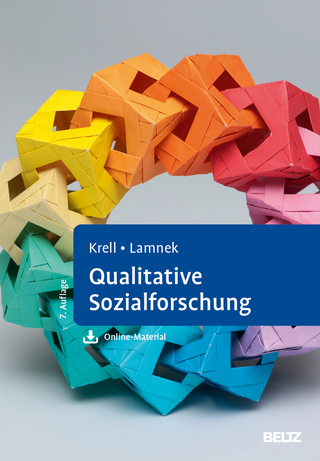
Philosophy of Computational Cultural Neuroscience
Seiten
2020
Routledge (Verlag)
978-0-367-34751-2 (ISBN)
Routledge (Verlag)
978-0-367-34751-2 (ISBN)
This book aims to illuminate theoretical and methodological advances in computational cultural neuroscience and the implications of these advances for philosophy. Philosophical studies in computational cultural neuroscience introduce core considerations such as culture and computation, and the role of scientific and technological progression for the advancement of cultural processes.
The study of how cultural and biological factors shape human behaviour has been an important inquiry for centuries, and recent advances in the field of computational cultural neuroscience allow for novel insights into the computational foundations of cultural processes in the structural and functional organization of the nervous system. The author examines the computational foundations of the mind and brain across cultures and investigates the influence of culture on the computational mind and brain. The book explores recent advances in the field, providing novel insights on topics such as artificialism, reconstructionism, and intelligence.
Philosophy of Computational Cultural Neuroscience is fascinating reading for students and academics in the field of neuroscience who wish to take a cultural or philosophical approach to their studies and research.
This book is the winner of the International Cultural Neuroscience Society’s International Book Prize.
The study of how cultural and biological factors shape human behaviour has been an important inquiry for centuries, and recent advances in the field of computational cultural neuroscience allow for novel insights into the computational foundations of cultural processes in the structural and functional organization of the nervous system. The author examines the computational foundations of the mind and brain across cultures and investigates the influence of culture on the computational mind and brain. The book explores recent advances in the field, providing novel insights on topics such as artificialism, reconstructionism, and intelligence.
Philosophy of Computational Cultural Neuroscience is fascinating reading for students and academics in the field of neuroscience who wish to take a cultural or philosophical approach to their studies and research.
This book is the winner of the International Cultural Neuroscience Society’s International Book Prize.
Joan Y. Chiao is the Director of the International Cultural Neuroscience Consortium. She received her Ph.D. from Harvard University in Psychology and B.S. with Honors from Stanford University in Symbolic Systems.
Introduction
Part I
1 Agency
2 Automatism
3 Interface Theory
4 Machine Functionalism
Part II
5 Reconstructionism
6 Machine Physicalism
7 Computational Theory of Mind
8 Simulation
Part III
9 Artificialism
10 Machine Learning
11 Intelligence
12 Virtual Realism
Conclusion
Index
| Erscheinungsdatum | 10.09.2020 |
|---|---|
| Reihe/Serie | Essays in Cultural Neuroscience |
| Zusatzinfo | 7 Tables, black and white; 2 Line drawings, black and white |
| Verlagsort | London |
| Sprache | englisch |
| Maße | 152 x 229 mm |
| Gewicht | 276 g |
| Themenwelt | Geisteswissenschaften ► Psychologie ► Sozialpsychologie |
| Naturwissenschaften ► Biologie ► Humanbiologie | |
| Naturwissenschaften ► Biologie ► Zoologie | |
| ISBN-10 | 0-367-34751-2 / 0367347512 |
| ISBN-13 | 978-0-367-34751-2 / 9780367347512 |
| Zustand | Neuware |
| Haben Sie eine Frage zum Produkt? |
Mehr entdecken
aus dem Bereich
aus dem Bereich
Buch | Softcover (2024)
Heyne (Verlag)
12,00 €


